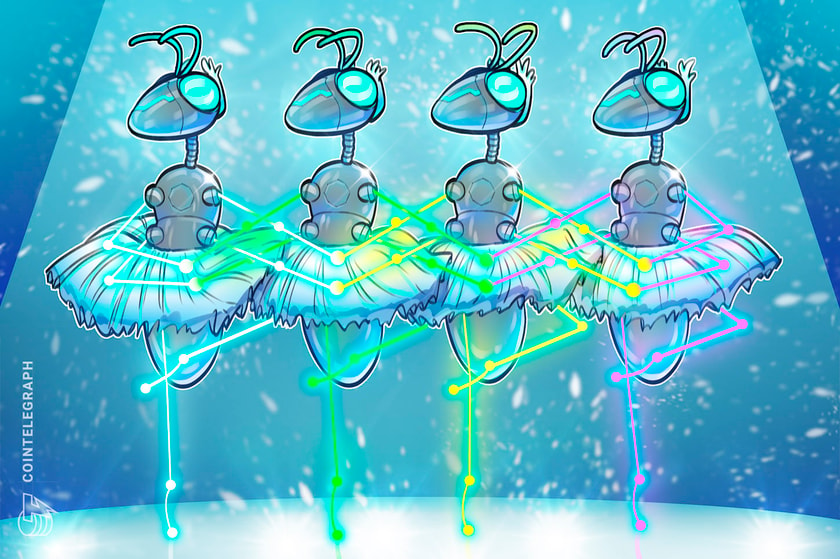
10 obstacles to cross-chain interoperability (and how they can be overcome)

Cross-chain operability may only be achieved when there’s not only a way, but a will to move forward.
Even crypto industry outsiders are gaining clarity on the benefits of blockchain technology, which is a significant step forward for the ecosystem. However, a challenge remains: The industry still struggles with interoperability between blockchain networks.
Unless different chains can safely and efficiently communicate and exchange data, the full power of blockchain — including true decentralization, new use cases, lower costs and, ultimately, further innovation — can’t be achieved. Here, 10 members of Cointelegraph Innovation Circle discuss some of the challenges still standing in the way of achieving cross-chain interoperability and how they can be overcome.
The lack of standardized protocols
A key challenge that our industry still faces in terms of cross-chain interoperability is the lack of standardized protocols and consensus. Development of interoperable protocols like cross-chain bridges and atomic swaps is one way to address this. Such efforts are already being seen in the industry, with brands like Polygon coming up with the Polygon bridge, which transfers tokens from Ethereum to Polygon. – Abhishek Singh, Acknoledger
The challenging user experience
In my view, the main challenge is not so much the technical aspect of different protocols, bridges or atomic swaps. It is in the user experience, which dictates adoption. Currently, to cross-chain, you need to be a power user with a highly complex setup of wallets — even if it’s just MetaMask with multiple chains configured. True interoperability only happens when the experience becomes seamlessly simple. – Tiago Serôdio, Partisia Blockchain
The lack of efficient cross-chain markets
A lack of efficient cross-chain markets severely limits the adoption of cross-chain technologies. Better markets could help the space cut away the centralized services that to this point have powered most user activity in the sector. Interoperability itself is only possible to a limited extent without breaking trust assumptions due to the diverse varieties of blockchains out there in the wild. – Simon Harman, Chainflip Labs
The lack of a cohesive understanding in the ecosystem
As a global space, the crypto ecosystem is an amalgamation of coding languages, algorithms, protocols and, ultimately, visions for what our digital future could become. But much like the Tower of Babel, we lack a cohesive understanding that unifies all participants under a single, seamless experience. Whether created or adopted from existing architecture, such a solution could rectify this issue. – Oleksandr Lutskevych, CEX.IO
The lack of demand
I don’t believe there is much standing in the way in terms of technology; the question is what is standing in the way in terms of demand. Bridges are an extra step, but they’re easy enough to execute if doing so adds value. I’d say that as long Ether gas fees remain relatively high, then demand should grow for bridging as the market gains steam and yield farmers become more aggressive, escalating the ex-ETH DeFi transaction volume. – Timothy Enneking, Digital Capital Management
Join the community where you can transform the future. Cointelegraph Innovation Circle brings blockchain technology leaders together to connect, collaborate and publish. Apply today
The difficulty of ensuring valid proofs
Chains have trouble convincing each other their own proofs are valid. Imagine two lawyers trying to convince a jury beyond a reasonable doubt, all while arguing in different languages. The uncertainty can grind business to a halt, or conversely, regrettable decisions are made to save time. It’s a difficult but familiar problem. The internet has taught us that standardized protocols promote effective communication. – Stephanie So, Geeq
Complexity
Complexity is the biggest challenge for cross-chain Web3 interoperability. Bridges and communication protocols are both built on highly complex underlying technology that can cause issues and disrupt regular operations. Diversification is therefore crucial for reducing risk. A multibridge system, for example, helps to limit your project’s dependence on a single cross-chain solution. – Wolfgang Rückerl, ENT Technologies AG
High computational loads
High transaction computational load is a core challenge when it comes to cross-chain interoperability. It happens when an increased number of transactions received from multiple networks clog one blockchain’s throughput. To address this, techniques like sharding (as employed by Polkadot and Cosmos) divide whole blockchain storage into several smaller and unique shards to process transactions without losing scalability. – Vinita Rathi, Systango
The potential for hacks
Hacks often happen when interoperability is achieved using wrapped tokens — the hack is carried out on the bridge between two blockchains. Different design choices that lead to different accounting methods, as well as other variations, complicate matters. Different chains can interoperate, but the process is cumbersome and prone to hacks unless the chains have been designed to interoperate from the very start. – Zain Jaffer, Zain Ventures
Scalability
Scalability complicates cross-chain interoperability. Large data transfers between chains are slow and inefficient. Sidechains and state channels enable faster transactions, and sharding and off-chain computation boost scalability. However, these solutions require collaboration and innovation to succeed. – Arvin Khamseh, SOLDOUT NFTs
This article was published through Cointelegraph Innovation Circle, a vetted organization of senior executives and experts in the blockchain technology industry who are building the future through the power of connections, collaboration and thought leadership. Opinions expressed do not necessarily reflect those of Cointelegraph.
Learn more about Cointelegraph Innovation Circle and see if you qualify to join.
Go to Source
Author: Cointelegraph Innovation Circle









